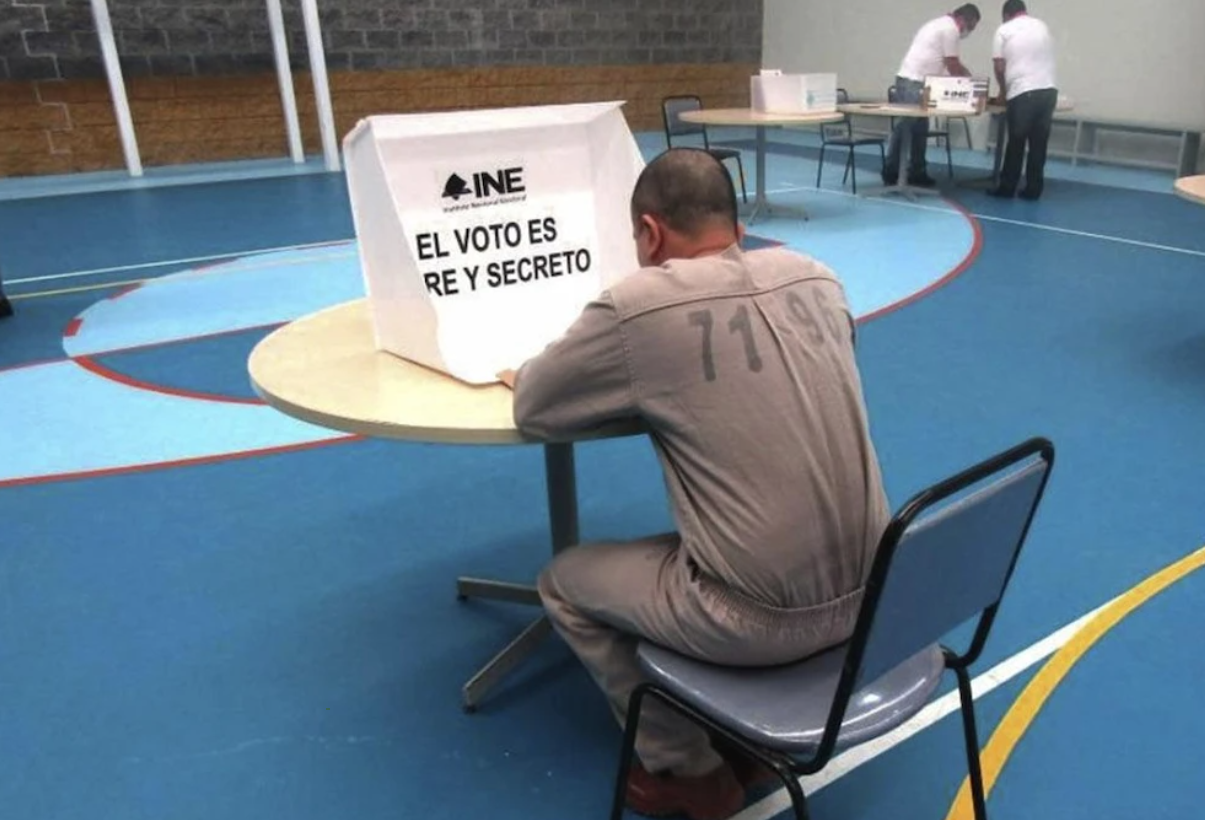The right to vote is a fundamental pillar of any democratic society. It is the means by which citizens can express their will and actively participate in the political decision-making process. Although this right is guaranteed by the constitutions of the countries, the effectiveness of this right for persons deprived of liberty (PPL) depends on the country.
In 2018, the judgment of the Mexican Electoral Tribunal of the Judicial Power of the Federation SUP-JDC-352/2018, established that persons deprived of their liberty have the right to vote in elections, as long as they meet certain requirements. This ruling was an important step toward guaranteeing the right to vote for this sector of the population. The basic requirements have to do with proving identity, being registered in the electoral roll and also, that they are not sentenced, that is, they are persons who are deprived of their freedom and subject to a trial.
Therefore, the National Electoral Institute (INE), in compliance with the ruling of the highest judicial body in electoral matters, implemented a pilot test in five states. Subsequently, the 2021-2022 electoral process in Hidalgo was carried out in a prison facility.
For the ordinary electoral process where governorships were elected in the states of Coahuila and Estado de México, INE implemented a mechanism to guarantee participation, but the results were contrasting. While in the State of Mexico 4,518 people were able to participate in 73 voting centers, the State of Coahuila had only eight voters in one penitentiary.
In order to guarantee the transparency of the process, 76 observers participated in the elections in the State of Mexico in 20 detention centers, where the international presence of Electoral Transparency stood out, which integrated a delegation of experts, including the International Foundation for Electoral Systems (IFES) for the Americas and the Caribbean.
Within this framework, it is important to highlight that INE has the capacity to install voting centers to guarantee the right to vote for all people. This right is impossible to visualize without the institutional commitment of various agencies, both electoral and governmental, where the Prison Control agencies play a key role in ensuring the governance of prisons.
One of the main challenges for incarcerated persons in Mexico is the lack of access to information and materials to guarantee an informed vote. In fact, although efforts were made so that inmates could have some elements for the reasoning of their vote, it is important to generate more inputs, and promote the comparison of proposals, debate, and distribution of propaganda so that people in pretrial detention can have more elements when voting.
At the international level, countries have different regulations regarding the right of incarcerated persons to vote. For example, in Latin American countries such as Argentina and Uruguay, persons deprived of liberty have the right to vote in elections, regardless of the crime they have committed. In addition, these countries have established measures to guarantee effective access to this right, such as the installation of ballot boxes in prisons. While in Brazil, people convicted of serious crimes, such as homicide and drug trafficking, cannot vote while serving their sentence.
In the United States, the right of incarcerated persons to vote varies by state. Some states allow inmates to vote while in prison, although others only allow them to vote once they have been released from prison and have completed their parole. While in some countries such as Norway and Sweden, incarcerated persons have always been allowed to vote, as it is considered a basic human right that should not be taken away as a result of a criminal conviction.
In conclusion, while Mexico has regulations in place that allow incarcerated persons to exercise their right to vote, there are still challenges that need to be addressed to ensure that their votes are free and fair. Despite the Mexican Electoral Tribunal’s ruling, effective measures are still needed to guarantee access to this right.
It is important that the electoral and prison authorities carry out a comparative analysis of the experiences in other countries. In doing so, measures can be implemented so that persons deprived of liberty have sufficient elements to cast a reasoned vote, in safe conditions, where electoral officials, political parties, and electoral observers can witness this important exercise of participation.
*Translated from Spanish by Janaína Ruviaro da Silva













